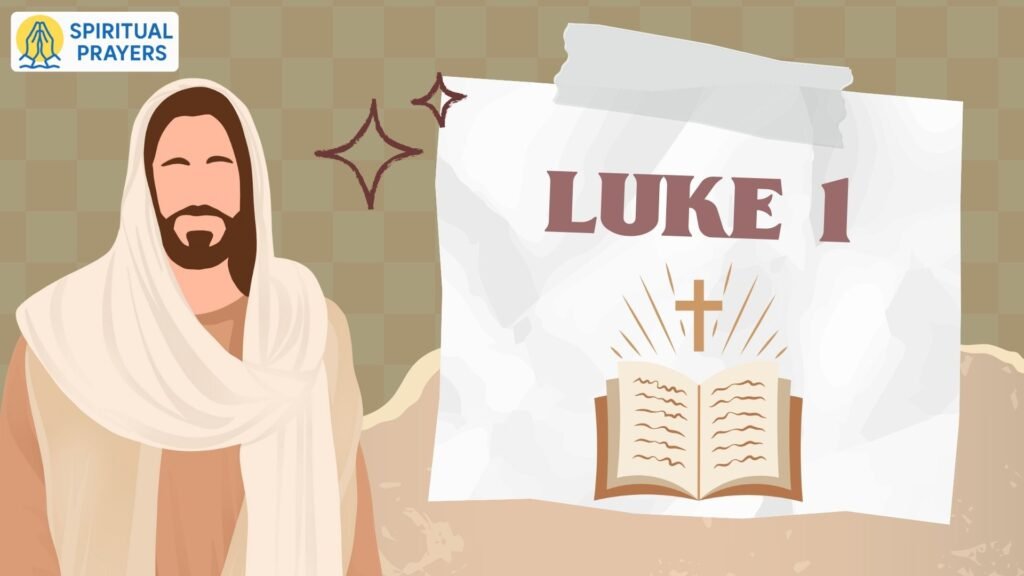
Luke 1 marks the beginning of the Gospel of Luke, a meticulously crafted narrative that lays the foundation for the story of Jesus Christ. This chapter introduces key figures, divine announcements, and prophetic songs that set the stage for the New Testament’s message of salvation. Rich with historical context, theological depth, and spiritual significance, Luke 1 offers profound insights into God’s plan for humanity. This article provides an in-depth analysis of Luke 1, exploring its themes, characters, and scriptural connections to help readers understand its importance.
Introduction to Luke 1: Purpose and Context
The Gospel of Luke, written by Luke, a physician and companion of the Apostle Paul, is addressed to Theophilus, a name meaning “lover of God.” Luke 1:1-4 serves as a literary prologue, outlining the author’s intent to provide an orderly and accurate account of Jesus’ life based on eyewitness testimonies. This introduction establishes Luke’s credibility and sets the tone for a gospel that emphasizes historical reliability, universal salvation, and the role of the Holy Spirit.
Luke 1 unfolds in two major sections: the annunciation and birth of John the Baptist (verses 5-25, 57-80) and the annunciation of Jesus’ birth to Mary (verses 26-56). These parallel narratives highlight God’s intervention in human history through miraculous births, fulfilling Old Testament prophecies and preparing the way for the Messiah.
Historical and Cultural Background
Luke 1 is set during the reign of Herod the Great (circa 37-4 BCE), a time of political tension and religious expectation in Judea. The Jewish people, under Roman occupation, longed for the promised Messiah to deliver them. Luke’s narrative draws heavily on Old Testament traditions, echoing stories of miraculous births like those of Isaac (Genesis 21) and Samuel (1 Samuel 1). The chapter’s emphasis on the temple, priesthood, and angelic visitations reflects a deep connection to Jewish religious life.
The Annunciation of John the Baptist (Luke 1:5-25)
Zechariah and Elizabeth: A Righteous Couple
Luke 1:5-7 introduces Zechariah, a priest of the division of Abijah, and his wife Elizabeth, both descendants of Aaron. Described as “righteous before God” yet childless, their story parallels Abraham and Sarah’s barrenness (Genesis 11:30). In Jewish culture, childlessness was often seen as a source of shame, yet Luke emphasizes God’s favor toward this faithful couple.
The Angel Gabriel’s Message
While Zechariah performs his priestly duties in the temple, the angel Gabriel appears to him (Luke 1:8-17). Gabriel announces that Elizabeth will bear a son named John, who will be filled with the Holy Spirit from the womb and will prepare the way for the Lord in the spirit of Elijah (Malachi 4:5-6). This prophecy positions John as the forerunner of the Messiah, fulfilling Isaiah 40:3.
Zechariah’s Doubt and God’s Sign
Zechariah questions Gabriel’s message, citing his and Elizabeth’s old age (Luke 1:18). His doubt contrasts with Mary’s later response and results in a temporary loss of speech (Luke 1:20). This divine sign serves both as a rebuke and a confirmation of the angel’s words. Elizabeth’s subsequent pregnancy (Luke 1:24-25) vindicates her faith and removes her social reproach, showcasing God’s mercy.
The Annunciation of Jesus’ Birth (Luke 1:26-38)
Mary: The Favored Virgin
In Luke 1:26-29, Gabriel visits Mary, a young virgin in Nazareth betrothed to Joseph, a descendant of David. The angel greets her as “highly favored” and “blessed among women,” signaling her unique role in God’s plan. Mary’s humble status and purity underscore the miraculous nature of the events to follow.
The Divine Announcement
Gabriel declares that Mary will conceive a son named Jesus, who will be called “the Son of the Most High” and will reign on David’s throne forever (Luke 1:30-33). This announcement fulfills prophecies such as Isaiah 7:14 and 2 Samuel 7:12-16, affirming Jesus as the long-awaited Messiah. Mary’s question, “How will this be, since I am a virgin?” (Luke 1:34), reflects her faith-filled curiosity rather than doubt.
The Holy Spirit’s Role
Gabriel explains that the Holy Spirit will “overshadow” Mary, enabling a virgin birth (Luke 1:35). This divine act ensures Jesus’ unique identity as both fully human and fully divine. The angel also cites Elizabeth’s pregnancy as evidence that “nothing will be impossible with God” (Luke 1:37). Mary’s response, “Behold, I am the servant of the Lord; let it be to me according to your word” (Luke 1:38), exemplifies her submission and trust.